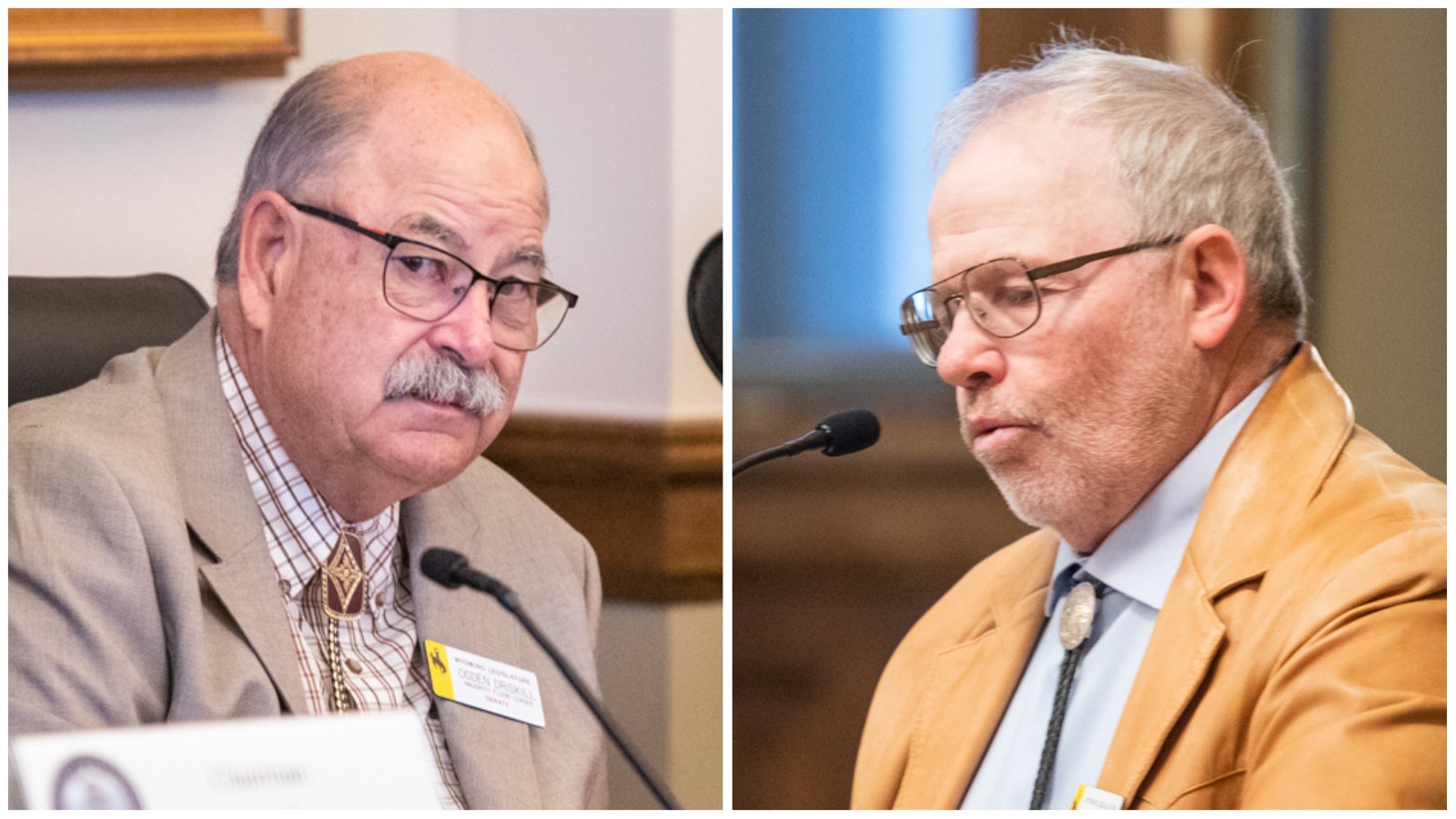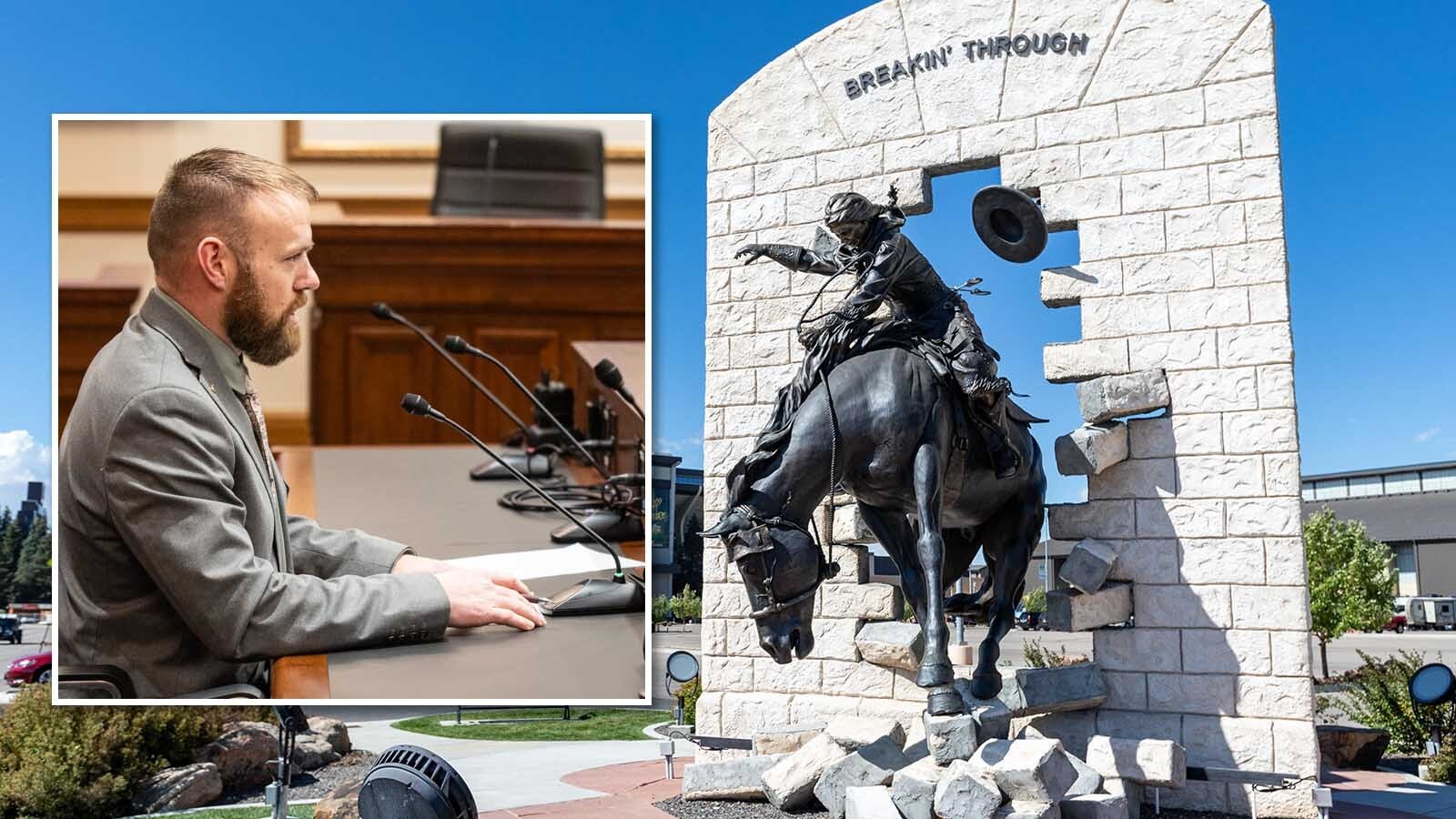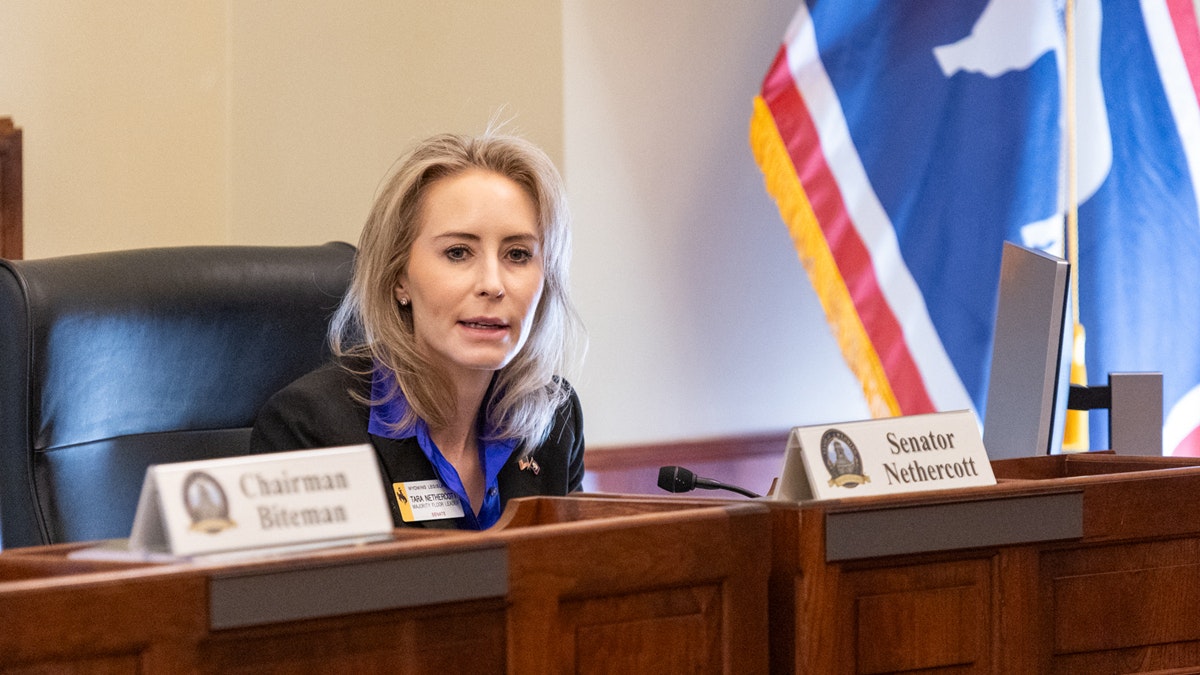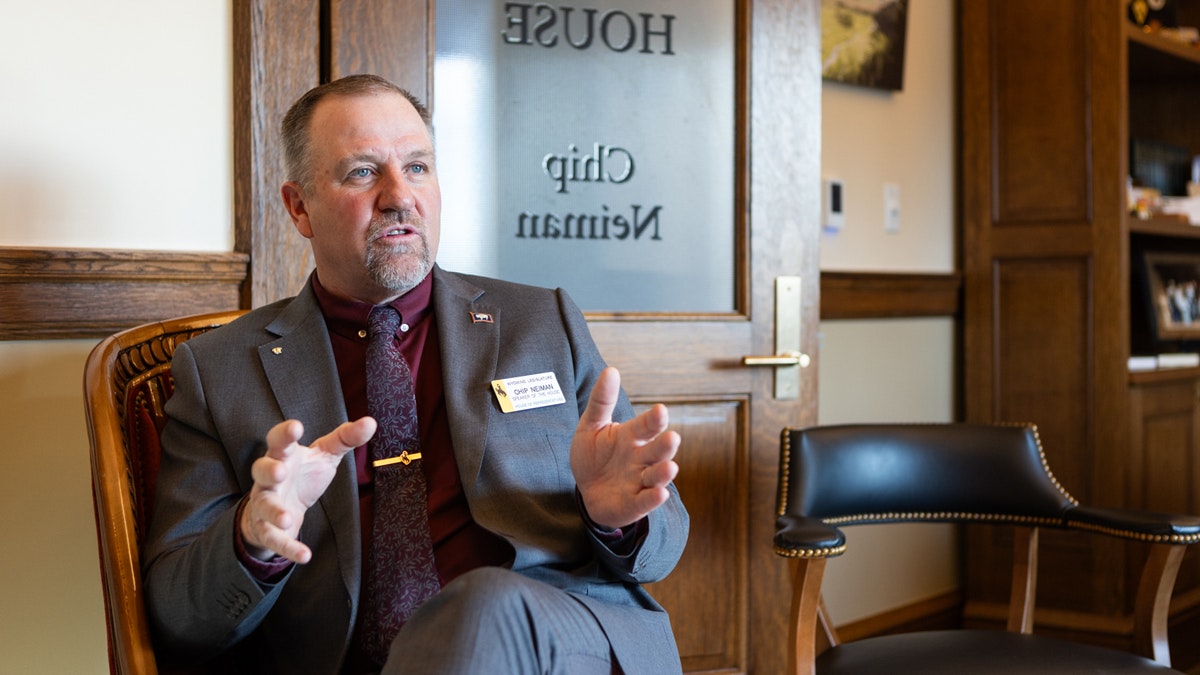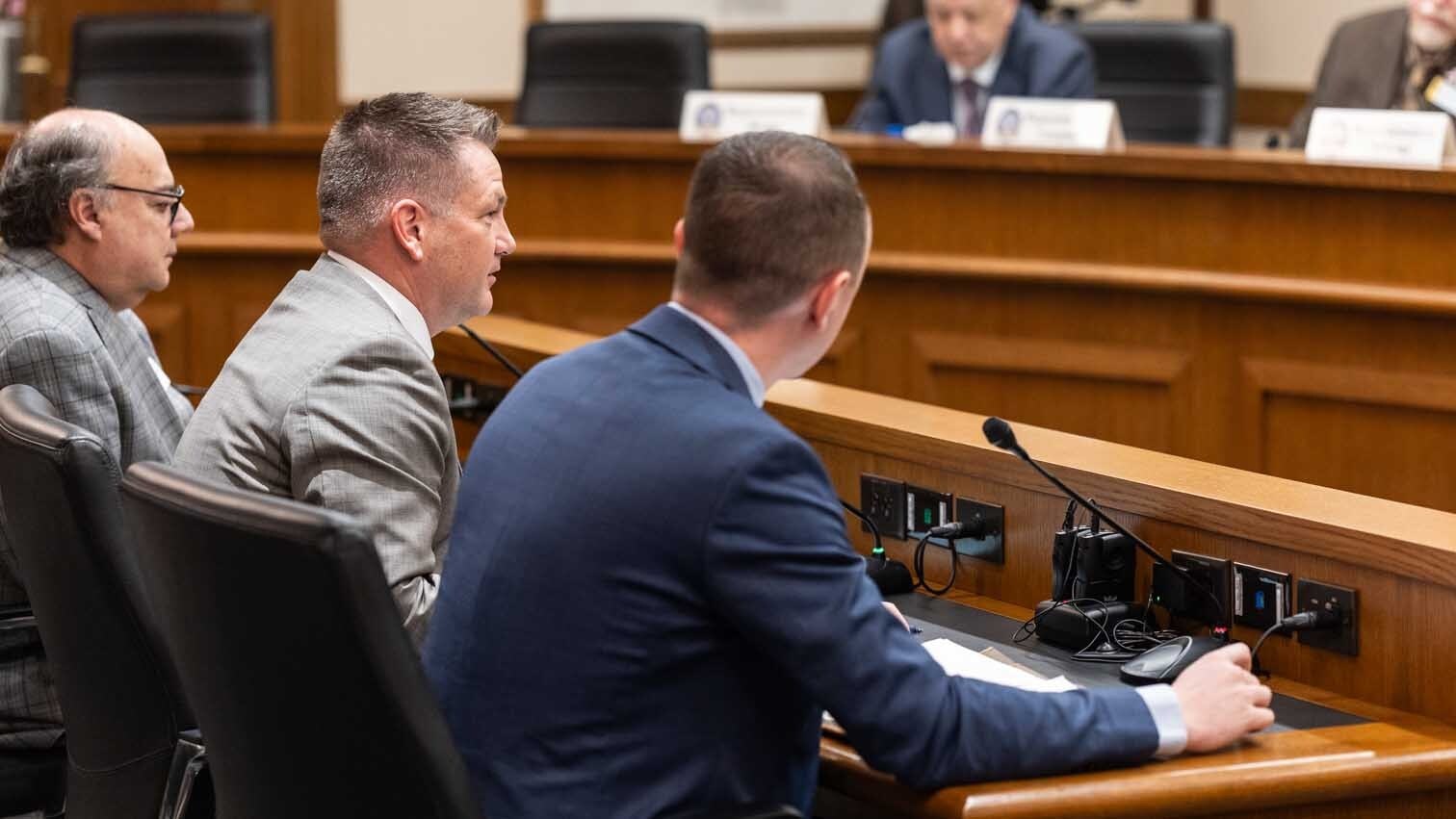By Leo Wolfson, State Politics Reporter
Leo@Cowboystatedaily.com
Two prominent leaders in the upcoming Wyoming Legislature have a sobering outlook for the future of the state, despite Wyoming being flush with oil and gas revenue and federal COVID-19 money.
“We’re on a huge sugar high of one-time money right now, but we all know we’re going to tougher times,” said state Sen. Ogden Driskill, R-Devils Tower. “We’re basically watching our budget really close that we don’t put ourselves in an incredible bind that we have to do Herculean tax increases because we made some bad moves down the road.”
That sentiment was echoed on a number of issues by Driskill and Rep. Albert Sommers, R-Pinedale, during a Wyoming AARP webinar Tuesday afternoon.
Water Watch
Sommers said water issues will take on a heightened severity for Wyoming over the course of the next century. He painted a cautionary picture of parched reservoirs throughout the state reducing to dangerously low levels.
The Colorado River Compact, an agreement involving seven Western states that guides water consumption in the Colorado River Basin, was established in 1922 under starkly different conditions than today. The basin is now in the midst of a decades-long drought that may take a generation to recover from.
“We’re going to fight for our water,” Sommers said.
Sommers said Wyoming’s agricultural industry will particularly feel the effects of a water shortage. He said these users and others will have to learn to conserve and use every drop of water available to them.
“I don’t think any of us understand what’s going to happen. It’s all going to be hard on us,” Sommers said. “We’ll end up with a lot of ranchers that go under, I just know it.”
Not Just Downriver Anymore
Historically, water availability has been a more critical issue for other Western states like Colorado because of their significantly larger population bases.
Many municipalities and water districts in Colorado have aggressively purchased water rights and storage space to be used for consumption many decades in the future. Other entities have enacted strict water conservation guidelines.
“It’s going to cause a lot of headaches until we learn to conserve like our neighbors to the south,” Driskill said. “Water has become an increasingly valuable commodity.”
Driskill said the city of Las Vegas has become quite efficient with recycling its water, operating at a 97% rate.
“They’ve become very creative,” he said.
Water Is Money
He said water availability connects to economic viability, mentioning how this was a key factor in Budweiser choosing its headquarters in Northern Colorado over Wyoming.
Driskill also mentioned center pivot irrigation systems as an example of wasteful water uses that drains wetlands.
“If we don’t see improved water conditions, how do I trade water to make me more efficient as an agricultural producer?” Sommers questioned. “It’s an unbelievably complicated problem facing us.”
Low water availability also will affect the drinking water supply for local municipalities. The city of Cheyenne receives more than 50% of its water from the basin, Sommers said.
Driskill did complement Wyoming’s cloud seeding efforts as a positive development.
Brain Drain And Gain
Sommers and Driskill also expressed concern about Wyoming’s shrinking rural populations.
Driskill mentioned how Hulett High School had more than twice as many students when he went to school there as it does now.
“We can’t lose our rural schools,” Sommers said. “When you lose rural schools, you lose small-town Wyoming.”
Driskill said Wyoming needs to find a way to make its educational funding model as economical as possible, an issue he connects to a need to diversify the state’s economy.
Cheyenne Growth
Both legislators expect Cheyenne to become a major metropolitan city in the future. The state capital is one of the fastest growing areas in Wyoming.
“It’ll turn into the Denver or Salt Lake City of Wyoming,” Sommers said. “There’ll be astronomical growth in this corner of Wyoming.”
Budget
One overarching theme of this year’s Legislature will be whether to spend and invest in the state’s future or save money for a future rainy day.
Sommers and Driskill both favor the middle road.
“I think we need a good dose of both,” Driskill said, promising to advocate for stowing away a third to half of available cash in permanent funds.
Driskill said he also supports Gov. Mark Gordon’s $354 million supplemental budget proposal.
The state is projecting a roughly $1 billion general revenue surplus, and another $1 billion surplus for K-12 education, mostly created by rising oil and gas prices over the last year.
“How we save or spend that money will make a difference for Wyomingites in the future,” Sommers said.
Costs Of Living
Driskill opposes Medicaid expansion and said he won’t consider advancing any related legislation out of the Senate unless it’s a budget amendment.
He believes the federal health care marketplace is enough to provide for the Medicaid need.
“It covers huge parts of the people if they’re willing to go out and go for it,” Driskill said. “Wyoming has been traditionally a state that they believe if you’re able to work and support yourself, you need to have a job.”
Although he opposed it in the past, Sommers said he supports Medicaid expansion after speaking with a number of people who would positively benefit from it.
He mentioned how he and his wife, both self-employed, had to obtain insurance from the public marketplace, as it would have cost them $40,000 a year through private means.
Tax Reform
Both legislators said property tax reform will be a major priority in the upcoming session.
“How do we treat the older generation, your poor and your infirm, so they don’t get taxed out of their homes?” Driskill questioned. “If you’re 60, 70, 80 years old and on a fixed income and you’re living in a house that you’ve been in since the 1940s, you can easily get in a position that you’re having to choose between groceries and living in your house. That’s not a choice for anyone.”
Driskill said he expects taxes to rise for middle class income earners in the future.
Sommers said he wants property tax relief that makes sense for homeowners and the governmental entities that benefit from this revenue. Sommers mentioned legislation he is drafting that would initiate a constitutional referendum to change property tax laws in Wyoming.
Sommers said one of the biggest problems with the state’s property tax laws is that residential properties are assessed within the same guidelines as commercial and agricultural property.
“So, you can’t create a subclass of seniors or a subclass of the poor or a subclass of the middle class,” he said. “Likewise, you can’t tax million-dollar homes higher than you tax others.”
More Money For State Workers?
Sommers expressed pessimism that a 1% cost-of-living-adjustment would make a meaningful impact for the state’s employees. He said a 1% COLA and 1% increase to the employer health insurance contribution would cost $68 million.
“I don’t know if we can do a COLA that is meaningful and sustain it and, frankly, keep our retirement fund solvent,” he said, blaming the state’s inconsistent revenue streams.
Sommers and Driskill both believe the state cannot afford to make enough meaningful change to fund the state’s employee pool properly in the long term.
“The long-term outlook is not sustainable. I hate to be the bearer of bad news,” Driskill said.

